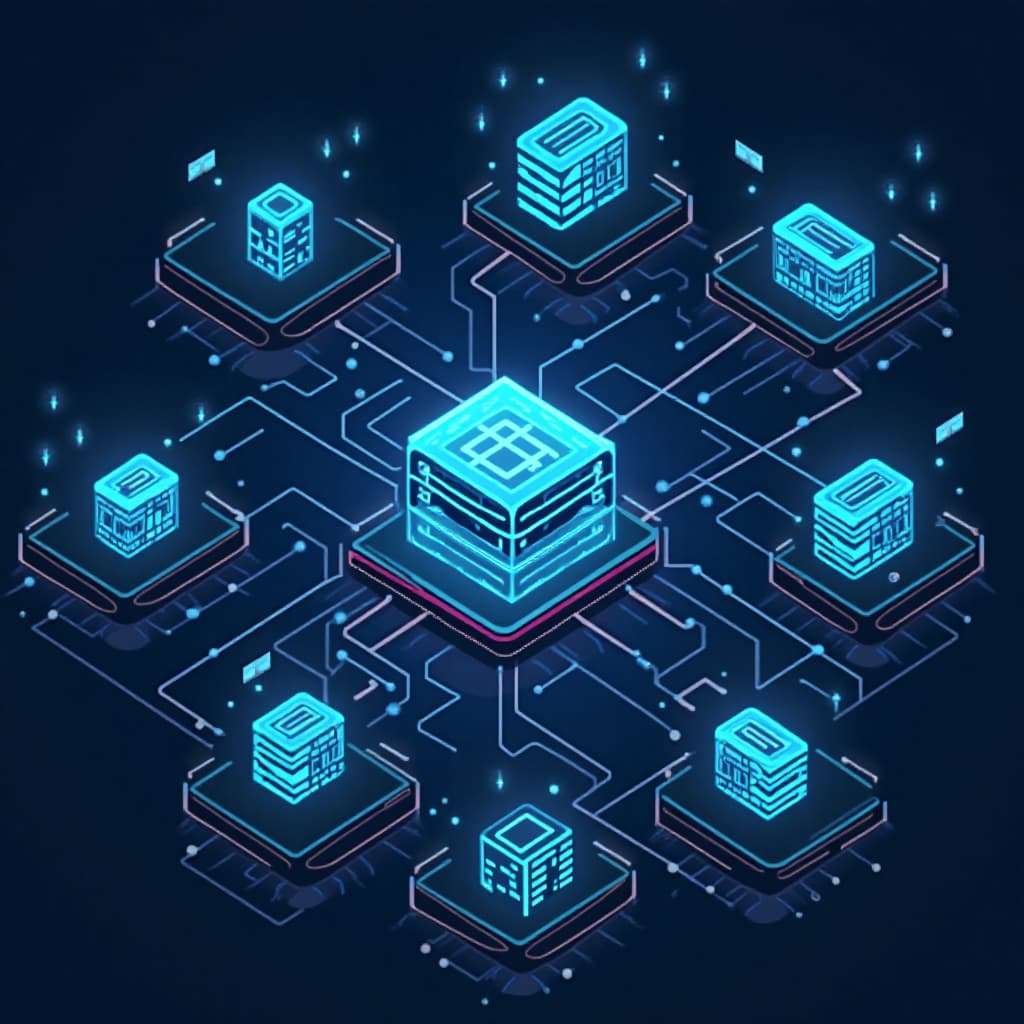
In the rapidly evolving digital landscape, Blockchain as a Service (BaaS) and Peer to Peer (P2P) architectures are transforming how businesses operate, innovate, and deliver value. Thereby leveraging the decentralized, transparent, and secure nature of blockchain technology. Because these paradigms are spurring novel business models. Therefore reshaping incentives through token economies, and broadening access to cutting edge solutions. Hence this blog post explores the BaaS ecosystem, the power of P2P networks, and seven blockchain based business models that are redefining industries.
What is Blockchain as a Service (BaaS)?
Blockchain as a Service (BaaS) is a cloud based systems services. Therefore that enables businesses to harness blockchain technology. Hence without the complexity of building and maintaining their own blockchain infrastructure. Much like Software as a Service (SaaS). Therefore BaaS provides a ready to use ecosystem. Hence where companies can develop, deploy, and manage blockchain applications efficiently.
Blockchain as a Service (BaaS) and P2P: Revolutionizing Business Models
Whereas BaaS platforms, such as those offered by IBM, Microsoft Azure, and Amazon Web Services. Therefore provide tools like pre configured blockchain networks, smart contract templates, and integration APIs. This permits access to blockchain. Therefore allowing businesses of all sizes, especially startups and SMEs. Therefore to leverage its benefits without significant upfront investment.
Whereby abstracting the technical complexities, BaaS is becoming the new app backbone. Therefore enabling organizations to focus on creating innovative applications in industries like finance. Supply chain, healthcare, and more. Because it’s a catalyst for digital transformation, fostering collaboration and trust in decentralized environments. We have even better information on our Web Design Okc Blog.

The Power of Peer to Peer (P2P) Networks
Whereas at the heart of blockchain lies the Peer to Peer (P2P) model. Therefore a decentralized network architecture where participants, or “peers,” interact directly without intermediaries. Because in a P2P network, each peer acts as both a client and a server. Thereby sharing resources like data, processing power, or storage directly with others.
Therefore this model eliminates the need for a central authority, reducing costs, enhancing efficiency, and improving resilience. Hence P2P networks are widely used in applications like:
-
File Sharing: Platforms like BitTorrent allow users to share files directly.
-
Online Payments: Cryptocurrencies like Bitcoin enable direct transactions without banks.
-
Collaborative Applications: Decentralized apps (dApps) leverage P2P for trustless interactions.
Whereby combining P2P with blockchain. Therefore businesses can create systems that are transparent, tamper proof, and inherently secure. Hence paving the way for innovative business models.
Seven Blockchain Based Business Models
Whereas blockchain technology is not just a technical innovation. Because it’s a foundation for entirely new ways of doing business. Here are seven blockchain based business models. Therefore that are driving the future of commerce and collaboration:
Token Economy
The token economy model uses utility tokens to incentivize user participation and facilitate activities within a blockchain ecosystem. Therefore tokens act as digital assets that can represent access rights, rewards, or currency within a platform.
For example, in decentralized finance (DeFi) platforms, users earn tokens for providing liquidity or staking assets. These tokens align incentives between users and the platform, fostering engagement and growth. Token economies are reshaping how value is created and distributed, enabling trustless and automated systems.
Blockchain as a Service (BaaS)
As discussed, BaaS provides a plug and play blockchain infrastructure for businesses. Therefore companies like IBM and Microsoft offer BaaS platforms that allow organizations to build custom blockchain solutions. Whereas without managing nodes or consensus mechanisms.
BaaS lowers the barrier to entry. Therefore enabling industries like logistics, healthcare, and retail. Hence to adopt blockchain for use cases like supply chain tracking, patient data management, or loyalty programs. Because it’s a scalable and cost effective model for driving innovation.
Network Fee Charge
In the network fee charge model, blockchain platforms charge users or entities transaction fees for utilizing the network. Therefore these fees, often paid in native cryptocurrencies (e.g., Ethereum’s gas fees). Thereby compensate validators or miners for processing transactions.
This model is prevalent in public blockchains, where fees sustain network operations and incentivize security. Whereby businesses building on these networks must account for fees in their cost structures. Therefore creating opportunities for fee optimization services.

BaaS Development Platforms
Development platforms provide blockchain technology stacks to organizations. Therefore enabling them to create custom solutions. Platforms like Ethereum, Hyperledger, and Corda. Hence offer tools, frameworks, and SDKs for building dApps, smart contracts, and private blockchains.
These platforms empower developers to innovate, creating solutions tailored to specific industries. For example, Hyperledger is widely used in enterprise settings for permissioned blockchains. While Ethereum supports public dApps.
Blockchain Based Software Products
Companies can develop and sell blockchain based software products. Therefore such as supply chain tracking tools, digital identity solutions, or decentralized marketplaces. Because these products leverage blockchain’s transparency and immutability to solve real world problems.
For instance, a blockchain based supply chain solution. Therefore can provide end to end visibility. Hence ensuring authenticity and traceability. By licensing or selling these products, businesses can generate revenue while addressing market needs.
P2P Blockchain Business Model
The P2P blockchain business model enables direct interactions between peers, eliminating intermediaries. For example, a P2P lending platform built on blockchain allows borrowers and lenders to connect directly. Whereas with smart contracts automating loan terms and repayments.
This model enhances efficiency, reduces costs, and promotes trust through transparency. Applications include P2P marketplaces, energy trading platforms, and decentralized social networks.

Blockchain Professional Services
As blockchain adoption grows, demand for professional services is surging. Therefore these services help organizations navigate the complexities of blockchain. Thereby ensuring successful implementation and compliance.
Blockchain professional services encompass consulting, auditing, and development of decentralized applications (dApps). Companies offer expertise in areas like smart contract development, blockchain integration, security audits, and regulatory compliance.
Why BaaS and P2P Are Game Changers
The convergence of BaaS and P2P is reshaping the business landscape by:
-
Broadening Access: BaaS makes blockchain accessible to non technical businesses, while P2P democratizes resource sharing.
-
Reshaping Incentives: Token economies align stakeholder interests, creating self sustaining ecosystems.
-
Enhancing Efficiency: P2P eliminates intermediaries, streamlining processes and reducing costs.
-
Fostering Innovation: BaaS provides tools for rapid development, enabling businesses to experiment with new models.
Together, these paradigms are driving a shift toward decentralized, trustless, and collaborative systems. Therefore they’re not just technologies. They are enablers of a new economic era.

The Future of BaaS and P2P
As blockchain technology matures, BaaS and P2P will play pivotal roles in shaping the future. We can expect:
-
Scalability Improvements: Advances in layer 2 solutions and sharding will make blockchains faster and more cost effective, boosting BaaS adoption.
-
Interoperability: Cross chain protocols will enable seamless interactions between different blockchains, enhancing P2P applications.
-
Regulatory Clarity: As governments define blockchain regulations, businesses will adopt BaaS and P2P with greater confidence.
-
Mainstream Adoption: From decentralized finance to supply chain management, BaaS and P2P will become integral to everyday business operations.
Conclusion
Blockchain as a Service (BaaS) and Peer to Peer (P2P) models are at the forefront of a technological revolution. Therefore empowering businesses to innovate, collaborate, and deliver value in unprecedented ways. By leveraging BaaS, companies can tap into blockchain’s potential without technical hurdles. While P2P networks enable direct, efficient, and trustless interactions. The seven blockchain based business models. Therefore ranging from token economies to professional services. Hence highlight the versatility and transformative power of this technology.
BaaS, is committed to helping businesses navigate this exciting landscape. Whether you’re exploring blockchain for the first time or scaling a decentralized application. Therefore our platform and expertise are here to drive your success. Join us in building the future of business, one block at a time.
